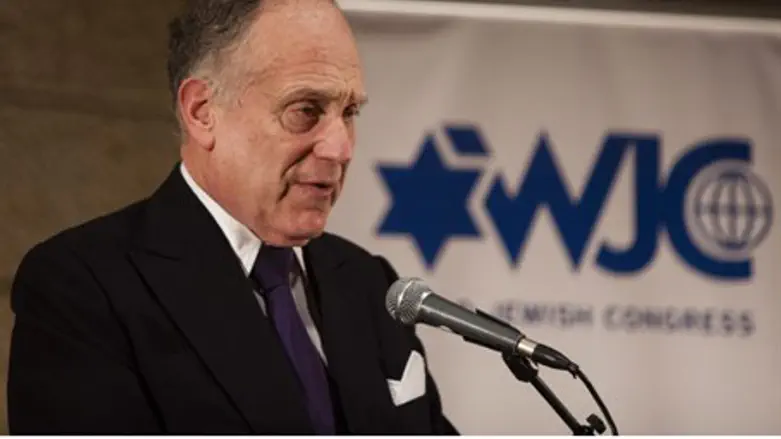
Jewish and pro-Israel groups continue to fire back at the American Studies Association's boycott of Israeli academia, following similar backlash from Israeli institutions Monday. The ASA specifically linked the boycott to the wider BDS (Boycott, Divestment, and Sanctions) movement, which has been linked with violent anti-Israel activity.
ADL Director Abraham Foxman denounced the move in the strongest terms. "This shameful, morally bankrupt and intellectually dishonest attack on academic freedom by the American Studies Association should be soundly condemned by all who are committed to the ideal that open exchange of ideas is the most effective way to achieve change," Foxman stated.
"Targeting Israeli institutions solely because they are in Israel -- the only democratic country in the Middle East where scholarship and debate are encouraged and flourish -- is based on a myopic and fundamentally distorted perspective of Israel and the conflict and is manifestly unjust."
AFP noted the equally forceful reaction from World Jewish Congress President Ronald S. Lauder, who said the vote "shows the Orwellian anti-Semitism and moral bankruptcy of the American Studies Association."
He criticized the move as unfair and biased in the wider context of the Middle East, where civil war in Syria and uprisings in a number of Arab countries have left tens of thousands dead.
"The American Studies Association singles out the Jewish state, the one Middle Eastern country that shares American values, for opprobrium? No wonder many Americans dismiss the academy as deeply biased and disconnected with reality," Lauder stated.
Geri Palast, Managing Director of The Israel Action Network (IAN), also condemned the move. “The Israel Action Network is troubled that members of the American Studies Association voted to support a boycott of Israeli academic institutions that directly violates the strongly held principle of academic freedom," he stated.
"The resolution, which purports to support academic freedom in which scholars are free to pursue ideas without being targeted for repression, discipline, or institutional censorship, in actuality urges a sweeping boycott of Israeli academic institutions based on tortured logic, factual inaccuracies and distortions of the role of Israel’s universities, public and private, in the implementation of government policy."
Palast also noted that there were clear biases in the vote - not only against Israel per se, but also in the notion that the vote represents a unanimous decision by the ASA's 5000 members.
"The process of endorsing the resolution, which consisted of an electronic membership vote that closed on December 15, raised issues regarding open member discourse and transparency. The call for a membership vote followed a recommendation by the ASA National Council, a small body of two dozen people that sets policy for an organization of only 5,000 members. The resolution faced vocal opposition by eight former ASA Presidents, ASA award winners, and members that wrote an open letter condemning the resolution with 70 signatories," Palast alleged.
"Until challenged, the leadership did not provide dissenting views or access to the membership to opponents of the resolution. ASA leaders who claim to champion academic freedom withheld alternate views from their colleagues, resulting in a vote where only one side of a complex conflict was formally presented. This reflected the same imbalance seen at the ASA’s recent annual meeting, where a panel discussion on the Israeli-Palestinian conflict featured only panelists in favor of a boycott," he explained.
Several of the Jewish organizations' statements also noted that the far larger American Association of University Professors (AAUP), which has more than 48,000 members, opposes a boycott of Israel.
Jewish groups commended the AAUP for their support of the Jewish state; however, they also warned that while the ASA does not present a real threat - only having 5,000 members at the most - the move could potentially set a dangerous precedent for other academic boards.
Former Harvard University President Lawrence Summers also condemned the move, in a PBS interview earlier this month.
"I think academic boycotts, on principle, are abhorrent," Summers stated. "The way to change behavior if you don't like it is to talk to people, not to isolate them."
A full video of the PBS interview is available below.